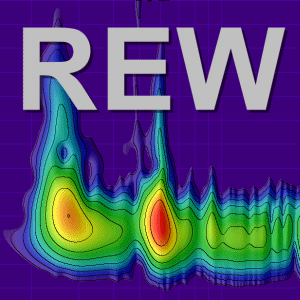Gruesome
Registered
Thread Starter
- Joined
- May 27, 2023
- Messages
- 5
More
- Main Amp
- TU-8200R
- Additional Amp
- Loxjie A30
- Other Amp
- Xduoo TA-10R
- Front Speakers
- KEF R3
I was thinking a bit about the limitations of looking at noise and harmonic distortions and time jitter separately, and also about why we are using harmonic distortions of discrete frequency inputs as a stand-in for general non linear signal distortion.
Could REW analyze amplifier or speaker output for a short (or not so short) music sample, by comparing the sample in digitized form to the input sample?
I think it must have already some/most of the necessary ingredients, since the requirements are not so different from e.g. doing a Fourier transform of an input. Instead of doing Fourier decomposition, it would have to amplitude-scale and time-align the amplified (or general output) sample to the input sample, and then compute the RMS of the difference signal. Actually, it should minimize the RMS of the difference of the amplitudes with respect to scaling and time alignment (I think this corresponds to making the integrated power or energy content of the samples the same), and the ratio of that minimum difference RMS to the input sample RMS (or the logarithm thereof) would then be the measure of quality of an audio reproduction element or chain.
It would be like SINAD, except it would also take time and phase distortions/errors into account, and it would not be limited to harmonic distortions. Like SINAD, it would vary with amplification/gain and depend on the measurement bandwidth, but unlike SINAD, it would also depend on the input sample. For a given bandwidth one could probably find a 'worst' sample that minimizes this quality measure (white noise?).*
Does this sound doable? I guess this is mostly a question for the author of REW.
(*): But it might be more interesting to compute this for real music samples, maybe filtered with a human hearing frequency response curve. You could have new rating categories like 'best amplifier for old people listening at low volume to Kraftwerk'.
Could REW analyze amplifier or speaker output for a short (or not so short) music sample, by comparing the sample in digitized form to the input sample?
I think it must have already some/most of the necessary ingredients, since the requirements are not so different from e.g. doing a Fourier transform of an input. Instead of doing Fourier decomposition, it would have to amplitude-scale and time-align the amplified (or general output) sample to the input sample, and then compute the RMS of the difference signal. Actually, it should minimize the RMS of the difference of the amplitudes with respect to scaling and time alignment (I think this corresponds to making the integrated power or energy content of the samples the same), and the ratio of that minimum difference RMS to the input sample RMS (or the logarithm thereof) would then be the measure of quality of an audio reproduction element or chain.
It would be like SINAD, except it would also take time and phase distortions/errors into account, and it would not be limited to harmonic distortions. Like SINAD, it would vary with amplification/gain and depend on the measurement bandwidth, but unlike SINAD, it would also depend on the input sample. For a given bandwidth one could probably find a 'worst' sample that minimizes this quality measure (white noise?).*
Does this sound doable? I guess this is mostly a question for the author of REW.
(*): But it might be more interesting to compute this for real music samples, maybe filtered with a human hearing frequency response curve. You could have new rating categories like 'best amplifier for old people listening at low volume to Kraftwerk'.
Last edited:













